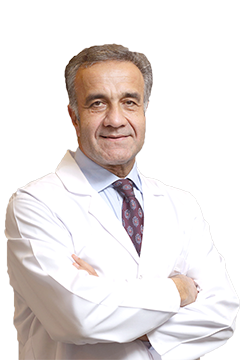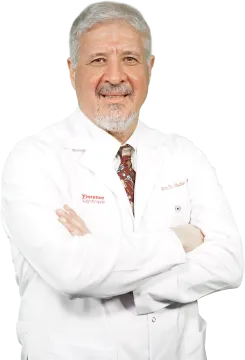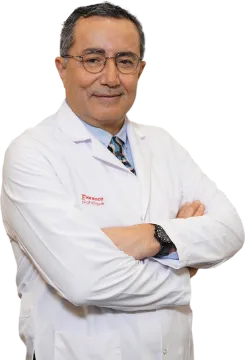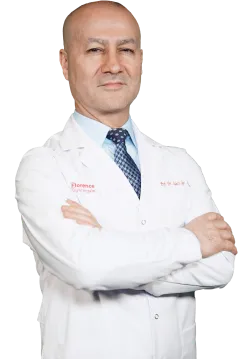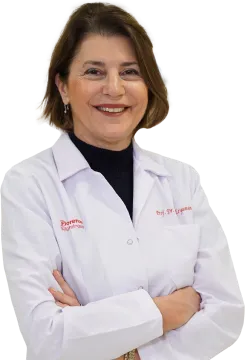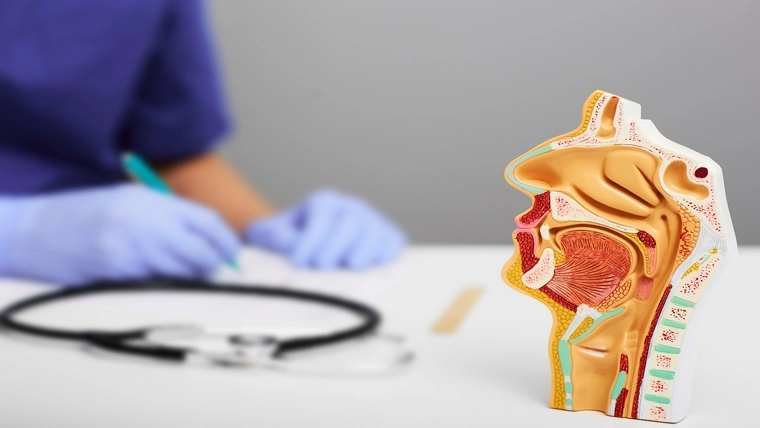
What is the Ear, Nose and Throat Department and What Diseases Does It Cover?
The Ear, Nose and Throat (ENT) department is a medical field that diagnoses and treats diseases related to organs in the head and neck region. Diseases of the ear, nose, throat, sinuses, mouth, vocal cords and neck area are within the scope of ENT.
About the Ear Nose and Throat Department
The ENT department is managed by ear, nose and throat doctors (ENT specialists). These specialists specialize in ear, nose and throat and head and neck surgery. ENT polyclinics are clinics where patients can receive examination and treatment by appointment.
Who is an ENT Specialist and What Are Their Duties?
An ENT specialist is a doctor who specializes in the ear, nose, throat, and related head and neck structures. Their duties include diagnosing diseases, creating treatment plans, and performing surgical interventions. ENT doctors treat a variety of diseases, including ear infections, sinusitis, tonsillitis, and hearing loss.
What Diseases Does ENT Cover?
The Ear, Nose and Throat (ENT) department deals with the diagnosis and treatment of various diseases related to the organs and tissues in the head and neck region. The main diseases covered by ENT are:
Ear Diseases
Ear Infections
- Otitis Media: Middle ear infection is common, especially in children.
- Otitis Externa: Infection of the outer ear canal, also known as swimmer's ear.
- Chronic Otitis Media: Persistent middle ear infection can lead to permanent hearing loss.
- Presbycusis: Age-related hearing loss.
Tinnitus: A constant ringing or buzzing sound in the ears.
Meniere's Disease: It is related to the inner ear and is characterized by dizziness, hearing loss and tinnitus.
Nose Diseases
- Sinusitis: Inflammation of the sinuses, either acute or chronic.
- Allergic Rhinitis: Inflammation of the nasal mucosa due to pollen, dust or other allergens.
- Nasal Polyps: Benign masses that grow inside the nose.
- Deviated Septum: Deviation of the nasal septum can lead to nasal congestion and breathing difficulties.
- Tonsillitis: Inflammation of the tonsils, usually caused by infection.
- Pharyngitis: Inflammation of the throat, usually due to viral infections.
- Laryngitis: Inflammation of the vocal cords, causing hoarseness and sore throat.
- Sleep Apnea: Pause in breathing due to airway obstruction during sleep.
- Head and Neck Cancers: Cancers that occur in the mouth, nose, throat, larynx and neck area.
- Thyroid Diseases: Dysfunctions or tumors of the thyroid gland.
- Salivary Gland Diseases: Infection or tumor formation in the salivary glands.
- Dizziness and Balance Disorders: Dizziness and balance problems caused by problems with the inner ear.
- Adenoid Enlargement: Adenoid enlargement is common in children and can cause respiratory tract obstruction.
- Chronic Cough: It may be caused by problems related to the throat or larynx.
ENT specialists specialize in diagnosing and treating these and similar diseases. If you are experiencing symptoms related to any of these diseases, it is recommended that you consult an ENT doctor.
What are Ear Nose and Throat Examinations?
ENT examinations may vary depending on the patient's complaints. In general, a physical examination of the ear, nose and throat is performed. Endoscopy, hearing tests, allergy tests and imaging methods may also be used.
What Methods Are Used in Ear, Nose and Throat Treatments?
ENT treatments vary depending on the type and severity of the disease. Drug treatments, surgical interventions, physical therapy and rehabilitation, allergy treatments and hearing aids are common treatment methods.
When Should You Go to the Ear, Nose and Throat Department?
When it is necessary to go to the Ear, Nose and Throat (ENT) department, early diagnosis and treatment can prevent the progression of the disease and its complications. It is important to see an ENT specialist for ear problems such as long-lasting earache, sudden or gradual hearing loss, ear discharge and disturbing ringing.
Sinus congestion and pain lasting more than a few weeks, ongoing nasal congestion, frequent or severe nosebleeds, and symptoms of allergic rhinitis require a visit to a nasal ENT specialist.
Throat problems such as chronic sore throat, difficulty swallowing, hoarseness lasting more than two weeks, and swelling in the throat also require evaluation by an ENT doctor.
It is also important to see an ENT specialist in cases such as swelling in the head and neck area, numbness in the face or neck, chronic cough and sleep apnea symptoms. Persistent nose, throat or ear symptoms caused by blows to the head, neck or ear area, frequent infections and allergic reactions also indicate the need to go to the ENT department.
If you experience any of these symptoms, it is important to see an ENT specialist immediately. Early diagnosis and treatment can help prevent more serious health problems.
What is Done During an Ear, Nose and Throat Examination?
During an Ear, Nose and Throat (ENT) examination, the doctor first listens to the patient's complaints and takes a general medical history. This step is important to understand the symptoms and possible causes of the disease. Then, the doctor moves on to a physical examination.
During a physical exam, your doctor will carefully examine your ear, nose, and throat. An ear exam uses an instrument called an otoscope to examine your ear canal and eardrum. This is done to look for infection, fluid buildup, or other abnormalities.
During a nasal exam, your doctor examines your nostrils and the inside of your nose using a nasal speculum or endoscope. This helps detect a deviated septum, polyps, infection, or other nasal problems.
During a throat exam, the doctor examines the throat using a tongue depressor and a lighted instrument. The tonsils, larynx, and vocal cords are checked. Throat infections, tonsillitis, and vocal cord problems are detected this way.
If necessary, the doctor may request further tests. Examples of these tests include hearing tests, allergy tests, imaging methods (x-ray, MRI, CT) and blood tests. Endoscopy is another common method used to see the inside of the nose and throat in more detail.
After the examination, the doctor makes a diagnosis and determines the appropriate treatment plan. Treatment may include medication, surgery, physical therapy, or other methods. ENT examination is critical for early diagnosis and effective treatment of the disease.
